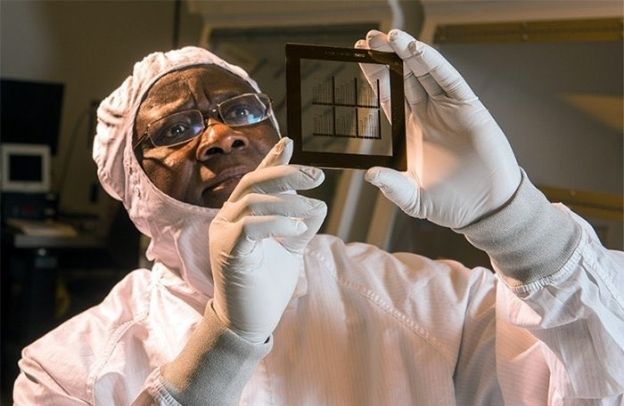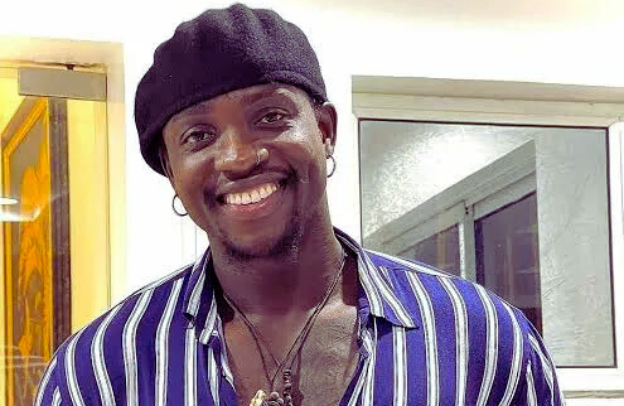The Life & Legacy Of Robert Okojie, a Nigerian-American (NASA) engineer

Nigeria has many best and brightest that make groundbreaking achievements in their home and adopted countries. The country’s leadership is extremely defective, bringing about the non-recognition of talented citizens brimming the country.
Download the first chapter of The Storytelling Series: Beginners’ Guide for Small Businesses & Content Creators by Obehi Ewanfoh.
However, many Nigerians living abroad keep performing record-breaking achievements in the diaspora. Robert .S. Okojie is a genius, one of the phenomenal individuals who have been elevating Nigeria’s position in the international community through his hard work, intelligence, and achievements.
See also – The Best Ways Africans Countries Can Benefit From Their Diasporans
Through these great performances, Nigerians seeking opportunities abroad get higher chances; plus, it has riddled that standpoint of Nigerians being cybercriminals. Robert Okojie is a notable figure from Esanland in Edo state, Nigeria.
His Early Life
Robert Sola Okojie is one of the descendants of Ogbidi Okojie, the famous Onojie of Uromi in Edo state, Nigeria- he ruled from the late 1800s to the middle of the 1900s. Robert Okojie was born in the 1960s in Barkin-Ladi, Plateau State, to Juliana Omakhamen Okojie (nee Odigie) and Prince Francis A. Okojie.
He attended his high school at Ibadan Boys high school in Oyo State, Nigeria. After graduating from high school in 1980, Robert traveled to the United States in 1986 to further his education.
He attained his Bachelor’s degree in 1991 at the New Jersey Institute Of Technology, and in 1993, he earned his master’s degree in Electrical engineering. Years later, in 1996, he earned his Ph.D.
Typical Daily Life
Okojie exposed how he spends his typical daily life. Like every other scientist, he admits to spending most of his time in his cleanroom where he fabricates new devices and analyzes them thoroughly at his lab by undergoing the necessary calculations and making his hypothesis, some of which might not yield the expected results.
His Career
Robert Okojie’s brilliancy paved the way for him in the course of his career as he invented over twenty patented devices since he joined the silicon carbide research group at NASA’s Glenn Research Center in Cleveland, United States.
Okojie’s patented products help to reduce spacecraft weight, thereby decreasing cost and fuel utilization, giving more space for payload. He has also published about 50 relevant papers related to his field.
His induction into the United States of America’s National Aeronautics Space Administration’s Inventors Hall of Fame is an honor only about thirty-six persons have been decked with since the inception of the agency. Therefore, this makes Okojie the fourth black person to have been graced with such an accolade.
Okojie was among the senior research scientists in Kulite Semiconductor products Inc, where he developed the first world’s high temperature, ohmic contact metallization on silicon carbide used as a sensor for high-temperature applications.
According to him, the development of these sensors at 600°C, was a breakthrough, “the breakthrough was the development of a robust contact metallization that is stable. The second breakthrough was the development of packaging that is compatible with the silicon carbide device itself.
The main issue with the packaging: You have differences in the coefficient of thermal expansion between materials. So, when you go to a high temperature, this difference in CTE begins to manifest itself in the form of fatigue.
When you go to cycle the device from hot to cold, the fatigue generally leads to the degradation of the device’s performance. What we’ve done is engineered a package so that each coefficient of thermal expansion is essentially closer to the coefficient of thermal expansion of silicon carbide.
So, you now have a harmonious functionality between the packaging and sensor.” He indicated the relevance of these sensors for high-temperature as it aids in downbeat the production of hydrocarbons that pose a huge health problem.
Therefore, he maintained that using these high-temperature sensors requires all users to affix the sensor close to the combustion source of the engine while giving it real-time monitoring.
However, Okojie asserted the challenges he faces when working with these high-temperature electronics as a result of the unavailability of many options in terms of the devices that you want to use to monitor the behavior of the sensor.” As a matter of fact, there are no high-temperature electronics out there that one can use as a basis for signal conditioning of the pressure sensor.”
Okojie was also a senior research scientist in Ford Microelectronics, Colorado Springs, CO, where he focused on developing MEMs sensors and packaging technologies.
His recent pursuit as an electronic engineer, in his words, is to “extend the temperature environment of my sensor from 600 °C to 1000 °C. I feel that if I can develop a pressure sensor that operates reliably at 1000 °C, it will extend its lifetime to several years if such a device operates at a lower temperature.
In other words, if I develop a 1000 °C pressure sensor that, say, will survive maybe a few months, it implies that if I were to operate the device at 600 or 700 °C, the functional lifetime of the device would be extended to more than ten years — a prediction based on the mean time of failure analysis. My primary focus now is to make the pressure sensor perform much better than it currently does.”
Okojie’s groundbreaking works have undeniably made many Nigerians proud, and it has aided in improving Nigeria’s engineering and technology that has withered for years. His works served as an inspiration to young Nigerians looking to improve their engineering skills, especially his paper works that unveils things related to his field.
In the vein of improving Nigerians’ technology expertise, Okojie has suggested establishing a foundry where solar cells can be manufactured, using both local raw materials and imported material.
Okojie’s contributions have been significant to the world at large. He can be considered as one of Nigeria’s true sons who has made a huge mark in international scientific circles.
Okojie’s Awards
Okojie has bagged many awards during the course of his career, and some of his awards include;
The 2011 NASA GRC Distinguished Publication Award.
2002 Scientist of the Year by the National Technical Association, conferred on him for improving the state of microelectromechanical systems (MEMS) used in harsh environments.
The 2009 NASA Abe Silverstein Medal in Research.
Also, he received the 2007 Cleveland Executive Board Wings of Excellence award.
Conclusion
Robert Sola Okojie is one of the most celebrated scientists in Nigeria and worldwide. He had a bold vision for what he wanted to achieve, and he set out to make it a reality. The result is nothing less than an outstanding role model for anyone who takes up science in the Nigerian education system.
Download the first chapter of The Storytelling Series: Beginners’ Guide for Small Businesses & Content Creators by Obehi Ewanfoh.





